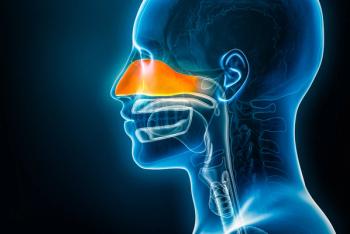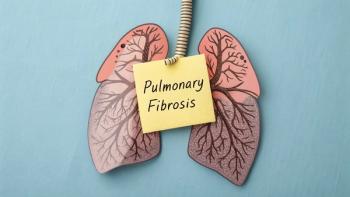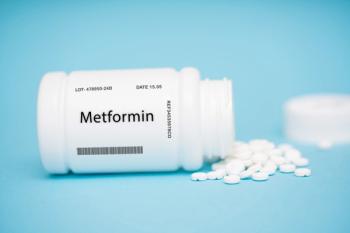
FDA Approves a New Option for Idiopathic Pulmonary Fibrosis
Jascayd targets the enzyme PDE4B, which plays a role in the inflammatory process. The new therapy is able to affect both fibrosis and the immune system. It will be available in the next few weeks.
The FDA has approved Boehringer Ingelheim’s Jascayd (nerandomilast) as an oral treatment option for idiopathic pulmonary fibrosis (IPF) in adult patients.
Idiopathic pulmonary fibrosis is one of the more common progressive fibrosing interstitial lung diseases, primarily affecting people over 50 and more men than women. It can affect up to 3.6 million people worldwide and an estimated 200,000 people in the United States.
IPF affects the tissue surrounding the air sacs, or alveoli, in the lungs. Over time, these changes can cause permanent lung scarring (fibrosis) that makes it more difficult to breathe. Symptoms include a dry and persistent cough, shortness of breath, fatigue and finger clubbing.
Current treatments can slow the progression of the disease and improve patients’ quality of life. Antifibrotic medications such as Ofev (nintedanib) or Esbriet (pirfenidone) help to slow the progression of scar tissue.
Jascayd is the first preferential inhibitor of phosphodiesterase 4B (PDE4B), which plays a role in the inflammatory process. It is able to exert both antifibrotic and immunomodulatory effects. Jascayd is oral therapy that is dissolved in water before taking, and it is expected to be available in a few weeks.
The list price of Jascayd is $16,219.68 per month, which a spokesperson said reflects its clinical benefits for patients with IPF, including its potential to slow lung function decline and offer a well-tolerated additional treatment option for patients. Boehringer is offering a patient support program, CareConnect4Me, to help patients navigate insurance coverage, access financial assistance, and streamline the process for obtaining and staying on treatment.
“This milestone represents a new era in the treatment of IPF, a rare and debilitating chronic condition that worsens lung function. Nerandomilast has proven to slow lung function decline in IPF,” Toby Maher, M.D., Ph.D., professor of Clinical Medicine, Keck School of Medicine, USC Los Angeles, said in a
The efficacy of Jascayd was evaluated in two randomized, double-blind, placebo-controlled trials of adults with IPF. The primary endpoint was the absolute change from baseline in forced vital capacity (FVC), which is a measure of lung function. FVC is the maximum amount of air a person can forcefully exhale after taking the deepest possible breath.
FIBRONEER-IPF enrolled 1,177 adult patients. At 52 weeks, there was less decline in absolute change from baseline in FVC in patients who received Jascayd 18 mg twice daily compared with patients who received placebo. But efficacy was not observed in patients who received Jascayd 9 mg twice daily with pirfenidone as background antifibrotic treatment. Additionally, a treatment effect was shown as early as week two with Jascayd 18 mg compared with placebo.
Trial 2 was a 12-week trial that enrolled 147 adults. At week 12, patients taking Jascayd 18 mg twice daily had a reduction in FVC.
There is no Warnings and Precautions section in the FDA-approved product label. The most common side effects associated with Jascayd are diarrhea, COVID-19, upper respiratory tract infection, depression, decreased weight, decreased appetite, nausea, fatigue, headache, vomiting, back pain, and dizziness.
Discontinuation due to adverse reactions occurred more frequently in patients treated with Jascayd (with or without background antifibrotic treatment) 18 mg (15%) and 9 mg (12%) compared with placebo (11%). The most frequent adverse reaction leading to discontinuation of either dose of Jascayd was diarrhea.
Regulatory submissions for nerandomilast in IPF are also under review in China, Japan, and the EU.
Newsletter
Get the latest industry news, event updates, and more from Managed healthcare Executive.























